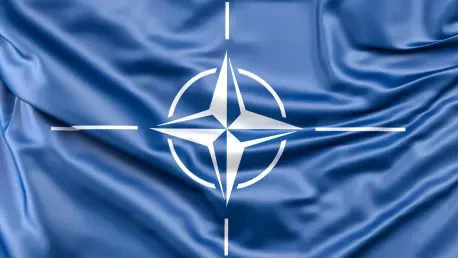In a world where international defense commitments dictate diplomatic relations, President Trump’s critique of Spain stands out as a pivotal point in the NATO landscape. During a recent NATO summit, an agreement was reached among world leaders to significantly boost their defense spending levels, targeting a surge from 2% to 5% of GDP by 2035. This declaration aligns with Trump’s long-standing advocacy for increased military investment by NATO allies, yet not every member welcomed this proposal with open arms.
President Trump’s remarks concerning Spain’s NATO defense spending sparked a dialogue about the future of international alliances and shared responsibilities. Trump’s direct communication style and persistent demands for higher defense budgets have underscored an ongoing debate in global defense strategies, reminding countries of the delicate balance between contributing to collective security and managing national economic priorities.
What Does Trump’s Criticism Mean for International Relations?
The global diplomacy landscape may significantly shift when a leading nation questions another’s commitment to a strategic alliance. Trump’s criticism of Spain raises crucial questions about the future of international partnerships and the pressures smaller or economically strained nations may face. While such criticism can galvanize policy changes, it also risks sowing discord among allies, potentially leading to strained relations or even re-evaluations of current alliances.
The Importance of NATO Defense Spending
NATO’s defense spending has been a cornerstone of global security, serving as a deterrent against threats and fostering economic stability within member countries. Trump’s historical stance, emphasizing increased financial commitments from NATO allies, has steered recent policy discussions. His push for higher spending reflects strategic intentions to bolster collective defense capabilities, ensuring readiness against contemporary security challenges. These discussions are particularly relevant in a geopolitical environment where emerging threats require swift and coordinated responses.
Spain’s Reservations and the 2% to 5% Increase Debate
Spain has expressed reservations about escalating its defense expenditure from 2% to 5% of GDP, highlighting a broader tension that exists within NATO. Some nations argue that rapid increases could strain already tight national budgets, impacting social programs and economic health. The contrast in opinions over defense financing represents a critical debate, echoed by the varied capacities of NATO members to fulfill this financial obligation. While larger economies may find the transition less cumbersome, smaller nations might grapple with aligning their budgets to match these heightened expectations.
Insights from Experts and Stakeholders
Experts from military and political sectors offer diverse insights into the implications of increased defense spending. Many assert that higher contributions could enhance NATO’s effectiveness and global presence. According to a NATO representative, “Elevated spending directly translates to a robust defense infrastructure, crucial in today’s volatile world.” Meanwhile, Spanish officials have voiced concerns, emphasizing the need for economic balance and resource allocation that aligns with national priorities. These dialogues enrich the narrative, evidencing the complex interplay of strategic interests and fiscal realities.
Strategies for Navigating International Defense Financing
Navigating international defense financing requires nuanced strategies that reconcile collective security needs with individual national circumstances. For NATO members like Spain, practical approaches such as phased spending increases or collaborative defense initiatives could prove beneficial. By diversifying and optimizing defense budgets, countries could meet alliance commitments while ensuring domestic priorities remain intact. Exploring shared resources, joint ventures in military technology, and streamlined logistics may offer actionable solutions, facilitating responsibility without overwhelming national economies.
The discussions surrounding Trump’s comments on Spain’s NATO contributions opened the dialogue about prioritizing defense amidst economic challenges. Finding a balanced approach where alliance obligations meet national capabilities could shape the future of international defense strategies, fostering a new era of cooperation within NATO. As these conversations evolve, the path to a secure and unified global community reflects a shared commitment to addressing the complexities of defense financing.









